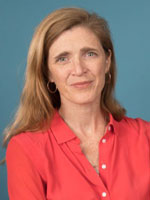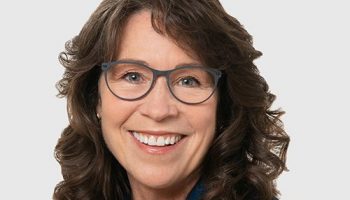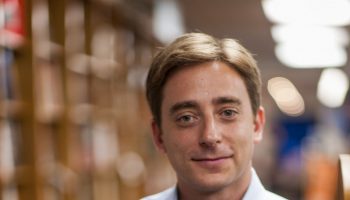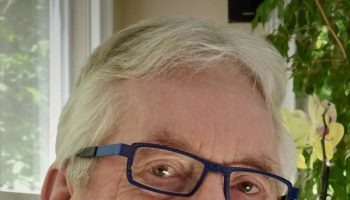Before the COVID-19 pandemic struck, before California and Australia were ravaged by climate change-fueled wildfires, before a massive explosion shattered Beirut and a U.S. drone strike killed an Iranian major general, Chautauqua Institution placed the Week Nine theme “The Future We Want, The World We Need: Collective Action for Tomorrow’s Challenges” on the 2020 calendar.

Ideally, according to Samantha Power, the rest of the world would have been on the same page. And if that were true, “we would not have needed this very rude and devastating reminder of how critical global cooperation is,” she said.
“So many of the key issues on people’s minds right now, the necessity is cooperation among countries,” Power said. “No matter which issue you choose, no matter what you care about, chances are, there is some international dimension.”
Power’s lecture, “America’s Role in International Engagement and Leadership,” will close the 2020 Chautauqua Lecture Series and the Week Nine theme in partnership with the United Nations Foundation. Her lecture will air at 10:45 a.m. EDT Friday, Aug. 28, on the CHQ Assembly Video Platform. Power is the former U.S. Ambassador to the United Nations, a Pulitzer Prize-winning author twice selected as one of TIME’s “100 Most Influential People,” and a professor at Harvard Kennedy School and Harvard Law School.
America is the most powerful country in the world, so it’s impossible to imagine addressing these problems in full without America at the table,” Power said. “If America isn’t part of the solution, it’s part of the problem.”
A Problem from Hell: America and the Age of Genocide, Power’s 2002 book, won the Pulitzer Prize for general nonfiction in 2003. It illustrates a century’s worth of American inaction in the face of multiple massacres: of Armenians in the Ottoman Empire during the World War I, in Europe during the Holocaust, and in Rwanda in 1994.
Eighteen years have passed since A Problem from Hell, and while the present-day problems are different in both size and shape, the irrevocable consequences remain largely the same. In the United States alone, more than 177,000 people have died from COVID-19. Nearly three billion animals were killed or displaced during Australia’s wildfires, more than 2,000 structures destroyed in the wake of those in California. The detonation in Beirut’s port compounded the ongoing political and economic crises gripping a Lebanon already unraveling.
As Power will emphasize in her presentation, there is a “disproportionate rate” of responsibility for America, and a growing one in China, to “get it right.”
“America is the most powerful country in the world, so it’s impossible to imagine addressing these problems in full without America at the table,” Power said. “If America isn’t part of the solution, it’s part of the problem.”
But in recent decades, Power said America has made an inordinate investment — both in terms of “big budget allocations” and attention — in the military over diplomatic solutions, “and we’ve got to change that.”
“We have to make investments in ending conflicts; aggressively addressing climate change, putting in place an infrastructure to deal with future pandemics — that has to be a top-tier priority in a way diplomacy never has been in my lifetime,” Power said. “The balance has to shift.”
The question of whether the United States will make those investments in diplomacy may “very well hinge on how many turn out for the November election,” according to Power.
“The fact that we have walked away from combating climate change domestically turned on a very narrow election margin,” she said. “Now, many Independent and Republican voters have begun to care about climate change — not, of course, the current president — but it’s a sign that individual action can elevate these issues.”
Individual action is often halted by a recurring tendency: People feel small compared to the scale of the problems that greet them, Power said.
“That can be very disempowering,” she said. “The pandemic has reminded us of the possibilities of being connected, but also the risk.”
No one person can resolve the COVID-19 pandemic, or any pandemic for that matter. So what Power can and will offer in her lecture and in the face of “problems of this magnitude,” is the strength in “shrinking the change,” or tailoring for oneself what their individual difference is going to be.
“I, Samantha, can’t solve the global refugee crisis — I single-handedly can’t do that,” Power said. “But I can go door to door in support of a candidate I believe in. I can donate money for an organization I care about. Everything feels small until enough people pick up that small task and that creates, over time, a political cascade. That cascade makes all the difference.”
This program is made possible by Week Nine “Program Sponsor” Erie Insurance and the Helen C. Lincoln Fund for International Programming.




